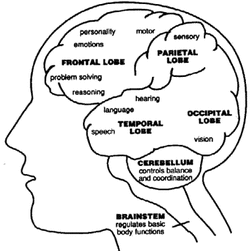|
One of my favorite classes this past quarter was called "Thinking on Your Feet." It's taught by a psychology professor and researcher who specializes in memory. We applied a lot of psychology research and different thinking techniques to solving business problems and becoming more effective "thinkers" within a business context. Below are some of my key takeaways. Physiology
Environment
Emotions
Dealing with Biases
Memory
0 Comments
Your comment will be posted after it is approved.
Leave a Reply. |
Archives
June 2024
Categories
All
Subscribe |

 RSS Feed
RSS Feed
